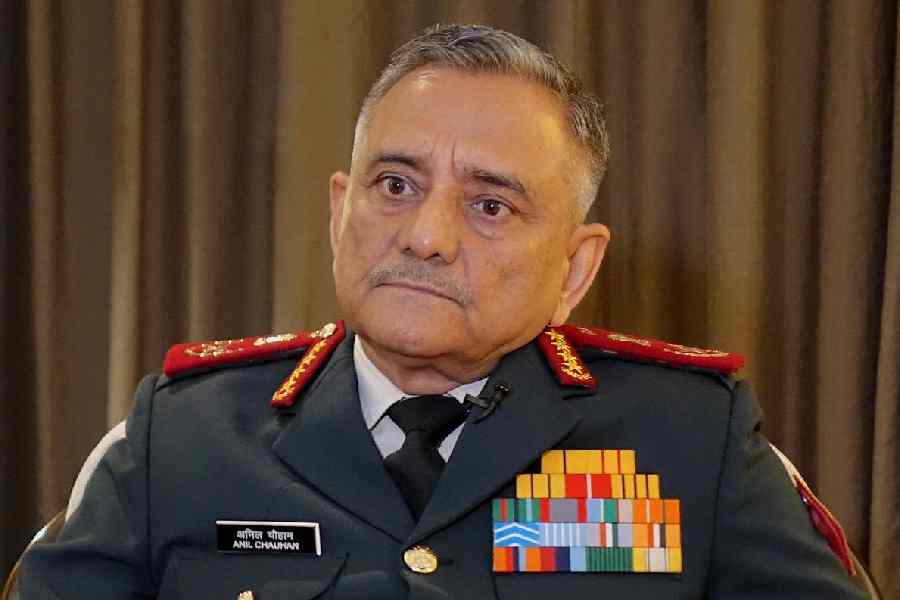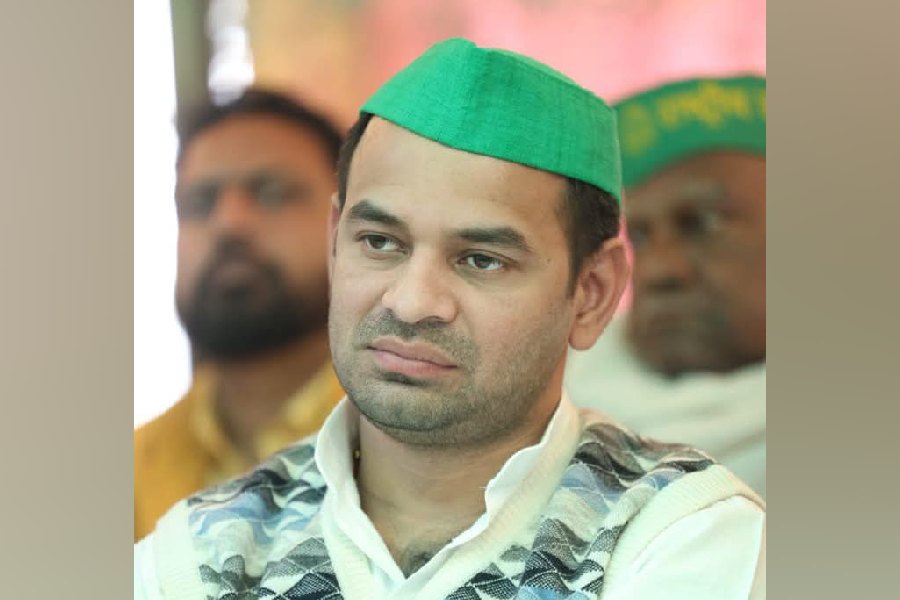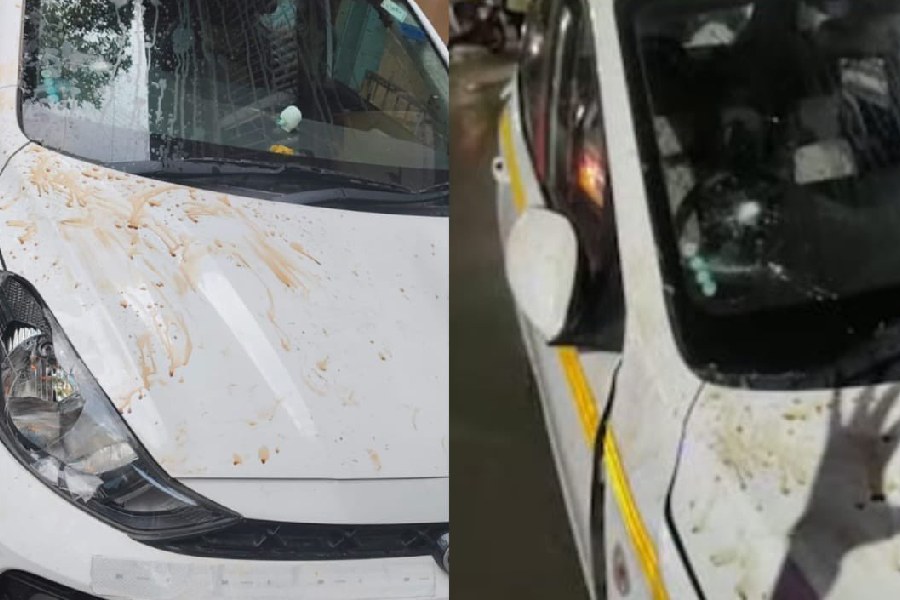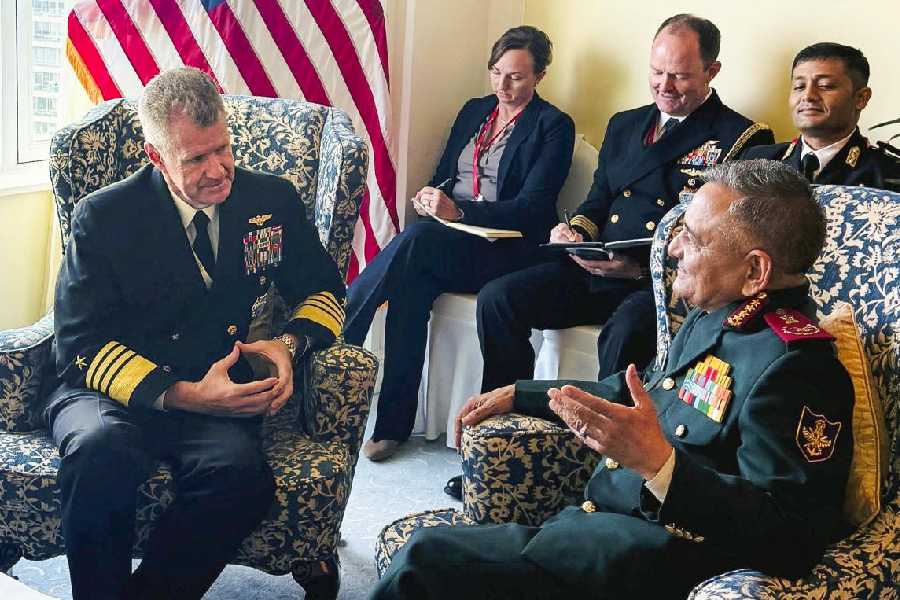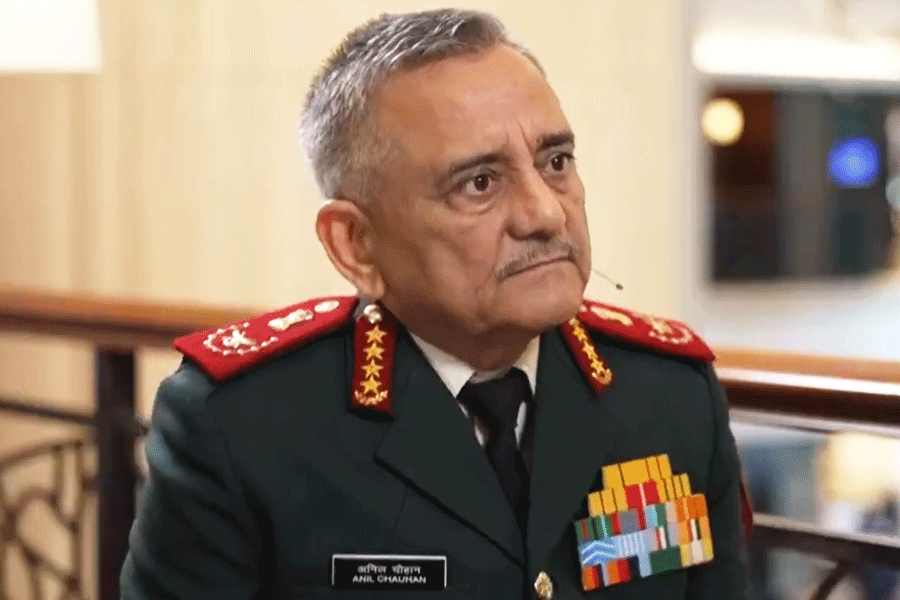 |
| Justice Altamas Kabir along with Chief Justice of Jharkhand Prakash Tatia (left) at a legal awareness camp at Women’s Probation Home in Ranchi on Sunday. The Supreme Court judge will inaugurate Madhupur subdivisional court via videoconferencing on Monday. Picture by Hardeep Singh |
Ranchi, May 20: Jharkhand High Court will be clicking on a new chapter in the annals of the Indian judiciary tomorrow when it inaugurates a court in Madhupur that will for the first time in the country hold online trial of prisoners lodged in Deoghar jail, some 40km away.
The system of videoconferencing, so far used only to produce undertrial prisoners during a hearing, will be used to conduct criminal trial proceedings in Madhupur whose subdivisional court was till now functioning out of Deoghar ever since the erstwhile Bihar government notified it in 1993.
According to Chief Justice Prakash Tatia, the accused criminals will be facing trial on the Deoghar jail premises while witnesses and their lawyers will be present in the court. “The witnesses will be cross-examined in court, which the accused will witness from the jail,” he told The Telegraph.
Tomorrow’s inaugural function on the high court premises in Ranchi will be graced by Supreme Court judge Altamas Kabir.
There are around 5,700 cases, including 700 involving serious offences, pending trial in Madhupur, once a favourite summer destination for Bengal’s affluent. These make up about one-third of the total number of pending cases in Deoghar, 18,000.
The new system, that will come into effect tomorrow, has been designed to tackle the exigency of pending cases in Madhupur. According to sources, Bihar had notified a subdivisional court for Madhupur way back in 1993, but at Deoghar that was made into a separate district in 1986.
Since then, the court has been functioning from the temple town.
The construction of a Madhupur subdivisional jail was to be completed by 2009. But, the appointed contractor failed to meet the deadline. Now, the state government is in the process of placing fresh orders for construction of the jail.
Justice Tatia has been the driving force behind creating a real-time database of pending cases that contains various details, including reasons behind the delay in disposing of the cases across various courts, including Jharkhand High Court.
“The results are startling and shocking. We have stumbled upon a case which had been pending in a district court for 40 years on the ground of a high court stay, though the stay had been vacated long back,” he pointed out.
The data, that shows an increase of 3,000 cases pending in various subordinate courts of Jharkhand, has been compiled into a book to be released tomorrow.
 |
Over 2.8 lakh cases were pending in subordinate courts, while in Jharkhand High Court, the number was 62,000 till January.
Justice Tatia, who is part of a national court management system committee, said that two special benches had been constituted to hear cases — involving serious offences — that have been stayed by another bench.
The committee, headed by G. Mohan Gopal with Supreme Court judges Altamas Kabir and P. Sathasivam as the other members, has been constituted to create uniformity in judicial nomenclature and set standards of performance for courts and address issues of quality, responsiveness and timeliness.
“These cases, including those related to Prevention of Terrorism Act, narcotics, rape, murder and corruption, etc, will be listed among the first 10 cases in the special bench,” Justice Tatia said.


